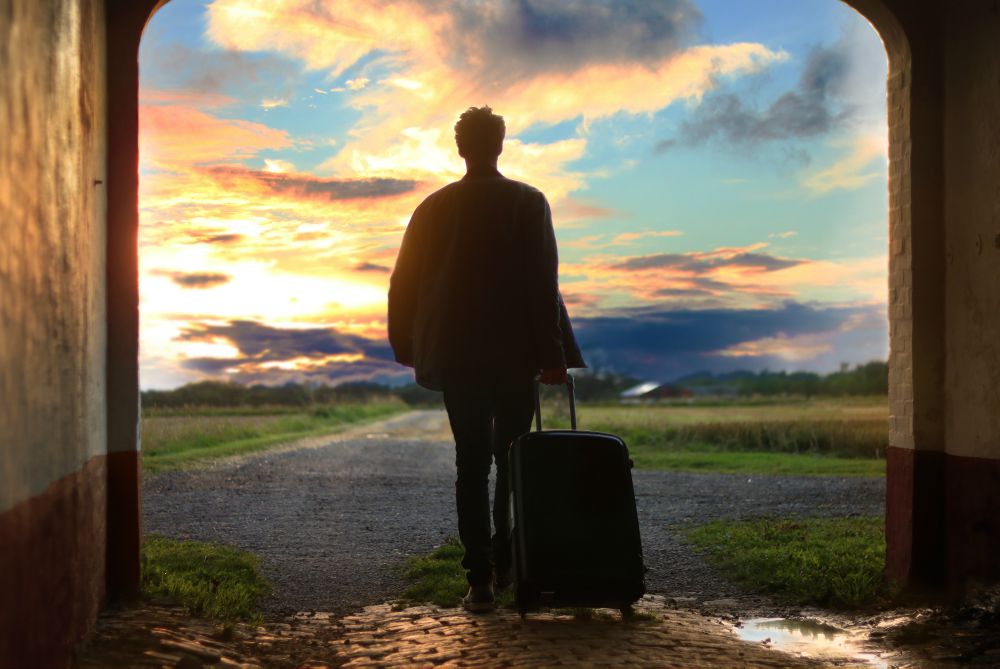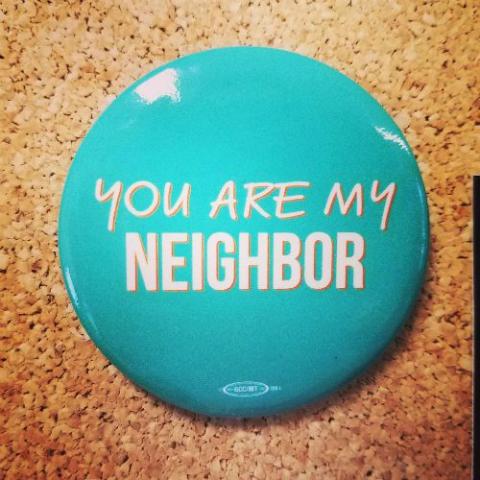
(Unsplash/Mantas Hesthaven)
"If we are going to take advantage of the assumption that all people want peace, then the problem is for people to get together and to leap governments — if necessary to evade governments — to work out not one method but thousands of methods by which people can gradually learn a little bit more of each other."
— President Dwight D. Eisenhower's remarks at the inauguration of People-to-People, Sept. 11, 1956.
"AMERICA = [image of a swastika]." That spray painted statement was on a concrete wall next to the highway I was traveling. It was June 2002, I was 14, and I was outside North America for the first time in my life. Specifically, I was in Greece, en route to Corinth with a bus full of similarly aged and highly energetic Americans from the Madison, Wisconsin, and Detroit areas. We were on a two-week People-to-People trip that began in Greece and ended in England.
Regrettably, dubious American foreign policy and relatedly anti-American images and sentiment are on display today just as they were 18 years ago. I recall that preparations for our 2002 trip included safety concerns about how Greece was within range of Iraqi missiles. The trip was nine months after 9/11, and nine months prior to the U.S. Invasion of Iraq.
The idea behind our trip, the purpose of People-to-People as instituted by war hero and president Dwight D. Eisenhower, was to get people of different cultures in contact with one another, to learn about and thus not fear one another. This would, he hoped, prevent war, reduce mistrust, animus and stereotypes. Eisenhower thought that if you encountered another person, another culture, you would better understand, better respect and better accompany the pursuit of peace. Today, encounter and accompaniment are themes that come highly recommended from the global bully-pulpit of Pope Francis.
I am grateful for partaking in People-to-People. It broadened my perspective, instilled a passion for travel and welcomed me into the 40% of Americans that have a passport and have ventured beyond our borders. When I returned, still exhilarated from the journey, I gathered some of my new friends from the trip. We addressed my local public school board, requesting that the board lift its international travel ban for students, which it put in place after 9/11. The board voted to lift the ban.
Today, there are at least two travel bans: on our journey to peoples different than us, and equally as important, on welcoming peoples who journey toward us. We need to collectively lift these bans. This I believe was the original intent of People-to-People, to encounter and experience those whom we are uneducated about, whom we may fear because we are conditioned to fear. The Christian tradition is rife with imagery and demands of journeying; Christ is the way, and we the pilgrim church on Earth are sent on a journey just as Jesus journeyed throughout his life.
Experiences and travel are not a panacea. In fact, for some, journeys may perpetuate the "white savior complex." Journeys can be classist based on cost, or be romanticized as in the literary hero quest motif (where the protagonist's story follows the three-step format: separation from home/society; initiation; return to home/society). Therefore, journeys must be intentional and involve discernment.
Advertisement
The cost of my People-to-People trip was $1,200. Were it not for my parish allowing my mother and I to sell crafts she made at spaghetti dinners and fish fries, a donation from the Knights of Columbus, and my family's chipping in by way of ensuring my Christmas presents were the supplies I would need for my trip, my parents could not have afforded to send me on my way. Recalling the crucial role the parish played, and how financially impractical it is for any group of people to set out to far-flung places and peoples, there are more practical journeys a parish can provide to facilitate accompaniment and encounter.
1. Journey with another, racially different parish. Those inflicted with injustice live across the street, not just across the world. For example, if you are white, during Black History Month (and also Black Catholic History Month), it may be an opportune time to start a dialogue with fellow Catholics whose liturgies and life experiences are different from your own.
2. Journey to your nearest mosque. Call first, and ask if a group from your parish could visit a mosque and learn about Islam — firsthand. Invite the imam and those who attend your nearest mosque to your parish for the simple purpose of showing hospitality and getting to know your neighbors. Imagine doing a service project together. Get to know new people. See what would be a productive work of mercy you could engage in together.
3. Likewise, journey to your nearest Jewish synagogue. A year or so after my People-to-People trip, my confirmation class traveled from our parish in Stoughton to the Temple Beth El in Madison, Wisconsin. Anti-Semitism, sadly, is rising with ferocity today. I would especially encourage youth groups and teens to go to a synagogue, like I did at that age, and be reminded that Jesus was a rabbi. Experience and learn about Jewish worship, culture and the Talmud. I hate cutting down trees, but could we have printed copies of Nostra Aetate at the end of every pew?
4. Journey to your parish hall. There are differences within the members of the church as much as there are differences in culture, religion, nation of origin and race. I think a good parish takes care of the needs not just of regular Mass-goers but the needs of all the people of God within its boundaries/neighborhood. I'm very pleased that my parish has hosted annual You Are My Neighbor events that welcome the entire community to encounter and dialogue about social justice concerns, including immigration and non-violence.
5. Petition your petitioners. If you really want to give your pastor and fellow parishioners a headache, call the rectory and find out who writes the Sunday prayers of the faithful. Are the petitions relevant? Are they so opaque, or worse, antithetical to Gospel demands that you could ask for more specificity and tenacity in the prayers? Related, one of my favorite hymns, which I haven't heard in years, is "The Church of Christ in Every Age." I would encourage folks to politely contact their parish music directors and see which not-often-heard hymns comport with the readings and our mission to go out in peace.

You Are My Neighbor pin (Mark Piper)
As Rumi put it, "I have lived on the lip of insanity." We are making weapons of war and deploying them against the same people today as we did when I traveled beyond the United States in 2002. The anti-American sentiment, made manifest along the road in Greece, is still visible today. I don't know the answers for all of us, but believing in the Gospels, in the beatitudes, I feel we must get outside of ourselves. Leave the enclosures of the comfortable and familiar, lest our hearts harden with certitude about people and regions we know little about; lest our hearts wither through indifference to the struggles and successes of our sisters labeled, "the other."
We must work at purifying our hearts, at mercy-ing, at peacemaking. As for the first followers of Christ, that means getting up and getting on the move. Not every trip will be a success, whether we are hosting or someone is hosting us; certain destinations will make us want to shake the dust from our feet and move on. But to not move outside of ourselves, to continue to expend time and energy maintaining our fears and ignorance keeps us living on the lip of insanity, and in the prelude of war.
Eisenhower knew that and articulated that, "Every gun that is made, every warship launched, every rocket fired, signifies in the final sense a theft from those who hunger and are not fed, those who are cold and not clothed." In light of ongoing vengeance and war and having had the privilege of partaking in Eisenhower's People-to-People vision, I would add that, every wall that is built, every journey of justice we refuse, every divisive tweet that is fired off, signifies a theft from the dignity of Christ our brother, from those who are our neighbors but to whom we do not provide the shelter of respect, empathy and love. Do not be afraid. Take a trip. After all, you cannot separate following him from what that demands — a journey.
[Mark Piper, a Packers fan in an unholy land, works in the nonprofit sector and resides in Chicago with his family. He is an alumnus of Amate House, an AmeriCorps-approved year of service organization sponsored by the Chicago Archdiocese.]
Editor's note: Don't miss any Young Voices columns. Sign up here, and we'll send you an email every time a new one posts to NCRonline.org.








